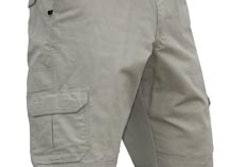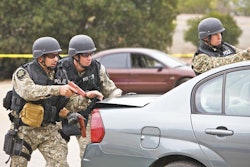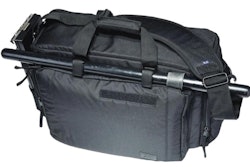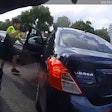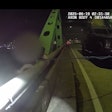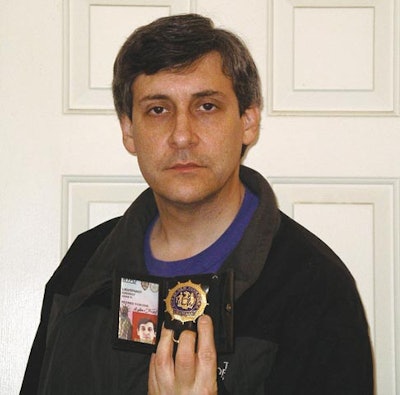 Try to have your shield/badge/ID out, and your gun holstered or in your pocket (with your hand on it if necessary) if you can safely do so.
Try to have your shield/badge/ID out, and your gun holstered or in your pocket (with your hand on it if necessary) if you can safely do so.
Dealing with incidents when you're off duty can be very different from working in uniform. Before you involve yourself in an off-duty incident, it is imperative that you have a game plan in place. As my former boss, Al Materasso (now NYPD's Chief of Manhattan Detectives), often told us, "Failure to plan is planning to fail."
Cover Yourself
Think about the types of crimes or situations that are serious enough for you to intervene. What enforcement action does your agency (and the law) authorize you to take while off duty? What if you're off duty and outside the jurisdiction where you work (e.g., if you live outside your jurisdiction or are traveling)?
Whenever possible, it is best to avoid disputes by speaking, acting, and driving courteously. I strongly recommend that you read Dale Carnegie's "How to Win Friends and Influence People" and George Thompson's "Verbal Judo" for strategies to avoid entering into altercations.
It is also important to use good judgment about when, where, and how much you drink. If you're involved in an off-duty incident and you've been drinking heavily, you're likely to have a problem with your agency or a legal problem no matter how justified your actions were.
If you're involved in a personal dispute of any kind—with a current or former spouse or significant other, a neighbor, a traffic dispute, etc.—unless you have an immediate need to defend yourself or another innocent person, it's usually wisest to call on-duty officers to respond rather than try to make an arrest or take other enforcement action yourself.
[PAGEBREAK]
What If?
Before you are faced with any of these difficult situations, ask yourself, What would I do if…I'm off duty and I see a crime in progress? …someone tries to rob me on the street or carjack me? …my family is with me when that happens? …someone tries to break into my home? …someone instigates a dispute or a fight with me?
If a family member is present, you may not want—or may not be able—to respond to a situation as you would if you were alone. In any event, you don't want loved ones to become liabilities. Tell family members and friends, especially kids, that if they're out with you and something happens, they shouldn't tell anyone you're a police officer, you have a gun, or worse yet, turn to you and say, "Do something!"
Visualize a variety of specific situations and think through your possible responses. It's easy to say, "If someone pulls a gun on me, I'd pull my gun and shoot him." But suppose you find yourself looking down the muzzle of a robber's gun at close range while your own gun is still holstered. How would you pull your gun out without getting shot? You may have to distract the robber by talking to him or handing over your valuables (or appearing to hand them over). You may have to gain physical control of his weapon, move the muzzle away from you, or try to move out of the line of fire.
You may even decide that the most prudent action, if all the attacker wants are material possessions, is to pretend to submit to the attacker, give him what he wants, and wait for an opening to act. As firearms trainer Greg Hamilton says, it's OK if they get away while you're pretending to submit. Don't feel that you have to get yourself killed in some hopeless attempt to act. Each situation is different, and each requires that you make a judgment call. Only you can decide what makes sense.
It is important to note that you should identify yourself before taking action off duty, but only if you can safely do so. Of course, you need to understand applicable laws and agency regulations regarding self-identification while off duty.
If you're in a store, bar, or bank that is being robbed and the robbers simply want to take money from the cash register or teller, it's usually safer for you and everyone else to let them. Commercial robbers often have hidden accomplices posing as customers whose job is to shoot anyone who intervenes or tries to call police. But you may have to act if the robbers are obviously about to murder someone, realize that you are a law enforcement officer, start searching customers, or herd customers into a back room.
If they start putting customers on the floor, you may choose to go prone and wait, unless you sense from reading their faces, their voices, their body language, what they say, and what they do, that you won't be getting up alive. If you know the robbers' reputation for violence (e.g., they fit the description of execution robbers), you'd obviously consider that, as well.
[PAGEBREAK]
What Equipment Should I Carry Off Duty?
You probably won't have body armor, a police radio, a backup gun, or a uniform that identifies you as an officer, so consider your options carefully. You should seriously consider obtaining a small portable radio for take-home use or buying one on your own with agency authorization.
If you're authorized to carry a firearm off duty, you should generally do so. Your firearm won't help you if it's in your locker, or in your safe at home. There may be times when it's not advisable to carry a firearm (for example, if you're going to be drinking), or when you may not want to have a firearm in your house. While many officers with young children do safely secure firearms in their homes, you may simply not feel comfortable doing so. Or there may be an older child or adult in your household whose physical or mental condition makes it inadvisable for you to store a firearm at home.
Bottom line: if you don't have a firearm, you should generally avoid making off-duty arrests, or intervening in crimes in progress, especially violent ones. (But remember that even a minor offense or dispute can escalate quickly.) Call on-duty officers to respond.
At a minimum, I'd suggest carrying the following items:
- A firearm.
- Extra ammunition. You may not think that you need more ammo for your high capacity auto, but if your gun malfunctions and you have a bad magazine or damage the magazine in clearing the gun, you'll need another good magazine.
- A cell phone.
- A less-lethal defensive tool, such as OC or pepper spray.
Think about how safely, quickly, and discreetly you can get to your gun, cell phone, OC spray, and other gear in an emergency. In many cases, a gun in a pocket holster, shoulder holster, or belt holster may be a lot easier (and less obtrusive) to get to than a gun in an ankle holster. Consider how secure the holster is, both in preventing the gun from falling out and in keeping someone else from grabbing it. Several companies make plainclothes holsters with security features to help retain your gun against a gun grab.
It is equally as important to think about what you should not carry off duty. To avoid advertising your presence, don't wear identifiable items of your uniform off duty. Wear police logo shirts, hats, etc., only at police functions.
[PAGEBREAK]
Keep Yourself Safe
During and after an incident, use the three rings of safety as suggested by police trainer Massad Ayoob: The Message, The Welcoming Committee, and You.
The Message: If you can't call yourself, have a reliable person call for police and an ambulance, if needed. Have the person say that you are an off-duty officer and give your description, as well as the suspects', so that responding officers know that you're the good guy. In a commercial robbery situation, it's safer for your family and friends to have a store manager or employee call, in case there are other robbers you don't see.
The Welcoming Committee: Try to have a responsible person, such as a store manager, meet the officers before the officers get to you. Instruct them to tell the officers your identity, your description, and your location.
You: Avoid meeting responding officers with your gun drawn, if you can safely do so. Holster it or put it in your pocket, but keep your hand on it. Look for the officers before they see you, so that you aren't startled when they arrive. Never turn on responding officers with a gun in your hand.
The responding officers are in charge, so do what they say and don't argue. If they tell you to drop your gun, drop it. As you do, turn it sideways so that it's more likely to fall flat instead of on the hammer or rear of the slide. Drop it where the suspect can't reach it. You can also step on it to make sure that the suspect can't grab it. If your gun is holstered, tell the officers, "My gun is holstered. I'm slowly raising my hands."
If you're involved in a serious off-duty incident, seek legal assistance early in the investigation process. Remember that the first duty of your agency's or municipality's lawyer is to your employer, not to you. Make sure that both you and your personal lawyer understand that while you need to cooperate with the investigation, you should not take pleas or accept settlements in court or accept disciplinary actions from your agency that aren't justified.
As noted at the beginning of this article, the key to dealing with off-duty incidents is planning, and the time to start planning is now.
Adam Kasanof retired from the NYPD as a lieutenant, and is also a lawyer. However, nothing in this article constitutes legal advice. You can contact him via david.griffith@PoliceMag.com.





